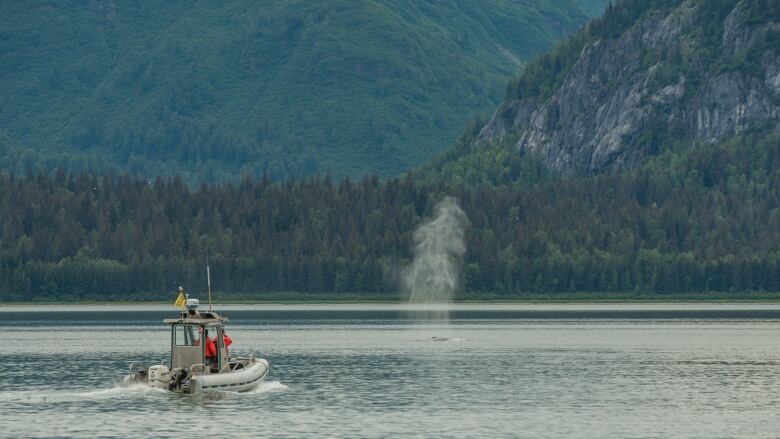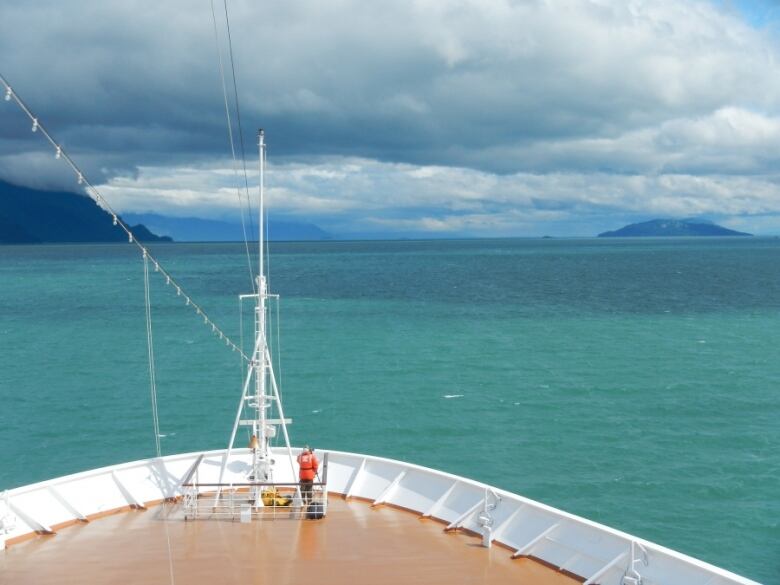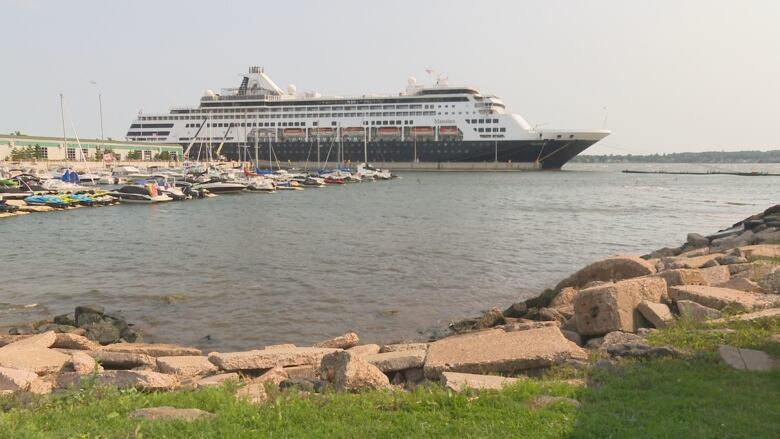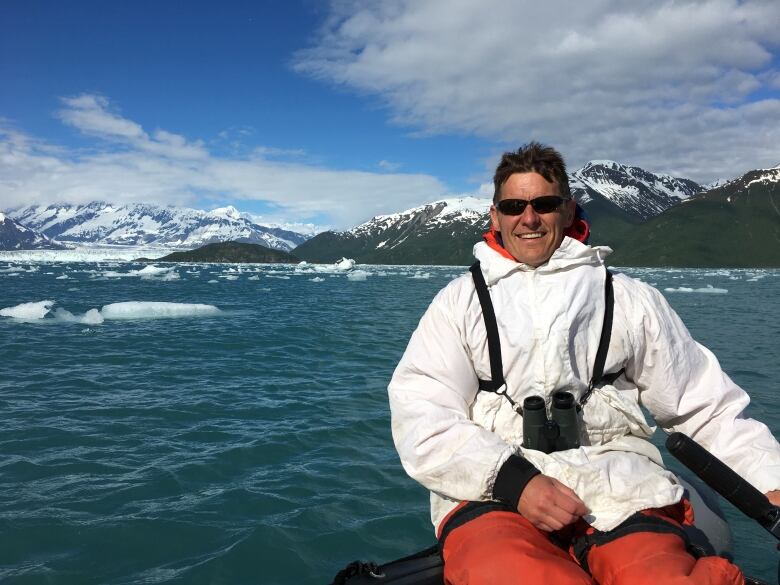Is whale monitoring the answer? Cruise industry seeks alternatives to speed restrictions
The speed restrictions were put in place in early August after a string of right whale deaths

A cruise industry groupsays it is working with government agencies to reduce speed restrictions in the Gulf of St. Lawrence.
Donna Spalding, director of administration for Cruise Lines International Association for the northwest and Canada, said a number of alternatives are being explored.
One possibility is the use of spotters on boats that would report activities and locations of whales.
Another is the use of hydrophones, which listento whalemovement patterns and send information to ships via satellite.

Spalding said protecting whales within the speed-restricted zoneis important, but because the whales follow their food sources and move on a daily basis, they could be concentrated in smaller spaces rather than scattered throughout the whole area.
"The object of the exercise is to understand, better, where they are," she said.
Reducing restrictions
Thirteen right whale carcasses have been found in Maritime waters since June. To help prevent further whale deaths, speed restrictions were put in placein early August for vessels 20 metres or larger.
Since then, cruise lines have been forced to alter itineraries to account for the change in speed.

"From cruises' point of view, the aim is to work with Transport Canada to find the mitigation measure that best suits the conditions, the whales' locations, where they are," Spalding said.
She saidthe U.S. governmentuseshydrophones to monitor shipping lanes around Maine and track the location of the whales.
Glacier Bay
Scott Gende, a senior science advisor with the U.S. National Park Service, said whale monitoring began in Glacier Bay, Alaska, in 1985.
Park Service boats and other partner vessels monitored where whales were, and when a number of them were found in an area, speed restrictions would be put in place until the whales moved.
In 2006, the service was enhanced by adding observers with high-powered binoculars on about half of larger vessels entering the Glacier Bay Park.
Our goal is to inform others of some of these programs which we feel have been successful and if they're adaptable then great,we'll stand at the ready to help and share.- Scott Gende
Gendesaid he isn't sure if this type of program would work for the gulf.
"We have an advantage in Glacier Bay for transporting observers out to the ship. The Park Service owns a boat that will go out and transfers interpretive rangers as well as the observers out to the ships," he said.
"Those logistics may not be the case in more open waters in the gulf. And again I'm not super clear how you could adopt that, such a program to the gulf."
Spotter success
Since the monitoring in Glacier Bay began in 1985, only two known ship strikes have occurred.
In 2001, a passenger on a cruise ship witnessed the vesselhit a whale, but the carcass was never found.
The other took placein 2004when the carcass of a humpback whale washed ashore and a necropsy showed it had injuries consistent with a ship strike.

Gendesaid if the experience of the park service in Glacier Bay can aid in creating a harmonious environment for whales and large vessels in the gulf, he and his team would be willing to get involved.
"Our goal is to inform others of some of these programs which we feel have been successful and if they're adaptable then great,we'll stand at the ready to help and share," he said.
"If they're not, then there might be other ways to approach the issue."
- MORE P.E.I. NEWS |'I feel really proud': Former dropout wins Literacy Award, credits kids for inspiring him
- MORE P.E.I. NEWS |90-year-old tennis player an inspiration on the courts
With files from Laura Chapin












_(720p).jpg)


 OFFICIAL HD MUSIC VIDEO.jpg)
.jpg)



























































































